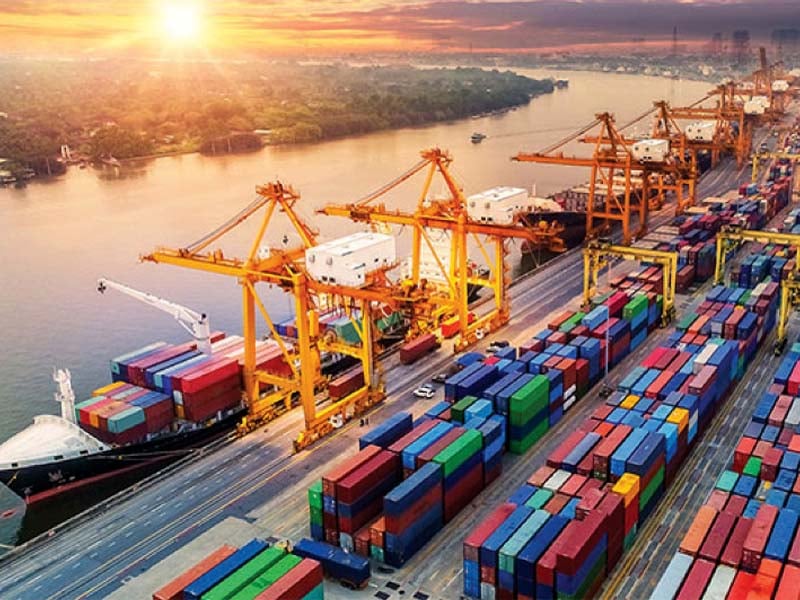
The undocumented economy tops the list of major challenges facing Pakistan’s economy. The volume of undocumented economy is estimated at 35%, or one-third, of the documented economy, but some economists put it at half of the formal economy based on different studies.
Some of the main reasons for the strength of undocumented economy are the lack of trust in government institutions due to shortcomings in the tax collection system, high tax rates and poor governance.
It is said that the people of Pakistan spend more on charity than tax payments to the government. Prime Minister Imran Khan has himself acknowledged this.
For a country like Pakistan where resources are limited and problems abound, tax payments are limited to 10-11% of gross domestic product (GDP), which is a matter of concern. Other countries in the region have better tax-to-GDP ratios, with India at 16%, Sri Lanka 13%, Indonesia 15%, Malaysia 14%, Thailand 17%, the Philippines 14% and South Korea 16%.
In the macroeconomic framework agreed with the International Monetary Fund (IMF) in 2008, Pakistan had set a target of bringing the tax-to-GDP ratio to 14.2% by 2013-14, which has not been achieved yet.
Tax evasion is one of the main reasons behind the low tax-to-GDP ratio. The rate of evasion of indirect taxes is much higher than payment of direct taxes on the taxable income.
It has been observed that the products that are subject to sales tax, income tax and federal excise duty are more prone to smuggling and under-declaration. In order to prevent tax evasion, it is necessary to adopt a system of effective surveillance free of human interference to monitor the entire supply chain of tax-evaded products.
Tax reforms
In various political periods, many tax reforms were initiated to increase the tax collection capacity, expand the tax net and prevent tax evasion.
Under the current Pakistan Tehreek-e-Insaf (PTI) government, former Federal Board of Revenue (FBR) chairman Shabbar Zaidi proposed that CNIC copy should be collected on sales of over Rs50,000. He also played an active role in introducing a track and trace system to monitor large industries’ production.
However, these proposals met stiff resistance and Zaidi was forced to retreat. Eventually, he quit the FBR.
What is the track and trace system? In this system, a specific mark is printed on each pack of products manufactured in Pakistan at a nominal cost. The system will be able to track the entire supply chain from manufacturing to retail, thus enabling timely identification of tax evasion.
Efforts to implement the system have been going on for the past seven to eight years. Now, the FBR has set June 2021 deadline for introducing the system.
In a tweet, PM Khan described the track and trace system as an effective tool for upholding the rule of law and preventing the sale of counterfeit products and illicit trade. He was confident that tax evasion of billions of rupees would be stopped after implementing the system.
Initially, it was decided to implement the track and trace system in four sectors - sugar, fertiliser, cement and cigarette. Locally manufactured undeclared cigarettes alone account for 30% of the total market volume.
According to research conducted by international organisations, tax evasion by Pakistan’s cigarette industry is causing an annual loss of Rs44 billion to the national exchequer. It also said that the country’s economy was losing Rs140 billion annually due to cigarette smuggling.
Unfortunately, whenever an important step is taken for improving Pakistan’s economy, a certain section becomes active to thwart such measures.
Recently, in a TV programme, Shabbar Zaidi elaborated on the reasons behind the delay in putting in place the track and trace system to document the economy and prevent tax evasion.
He said if the reasons for delay in implementing the system were understood, then people would know why the government or government agencies failed to take steps for the betterment of the country.
He said many manufacturers, dealers and retailers had become a mafia, which did not want the system to be strong and their theft caught.
Zaidi emphasised that digitisation was the only way to document Pakistan’s economy, which required introduction of technology-based solutions, which Pakistani vendors could adopt with the help of global tech companies.
Not only track and trace system but also technology and digitisation would have to be promoted to turn the Digital Pakistan vision into reality, including the creation of an efficient tax collection system, he said.
He was of the view that the track and trace system was a test case and if the system faced obstacles, then the dream of digitisation would not be fulfilled.
He acknowledged that complying with procurement laws was essential for transparency and prevention of corruption, but said it must also be ensured that the system did not stall.
Zaidi stressed that in order to remove obstacles to digitisation, the Public Procurement Regulatory Authority (PPRA) rules should be harmonised with the international rules related to IT contracts.
For sustainable economic development, it is necessary to raise public awareness of national projects. The process of awarding public contracts should be made transparent and flawless so that projects are not delayed at any stage.
Of course, the track and trace system is a preliminary but important step towards documenting the economy.
The writer is a staff correspondent
Published in The Express Tribune, March 1st, 2021.
Like Business on Facebook, follow @TribuneBiz on Twitter to stay informed and join in the conversation.

1731933289-0/BeFunky-collage-(68)1731933289-0-165x106.webp)


1729662874-0/One-Direction-(1)1729662874-0-165x106.webp)












COMMENTS
Comments are moderated and generally will be posted if they are on-topic and not abusive.
For more information, please see our Comments FAQ